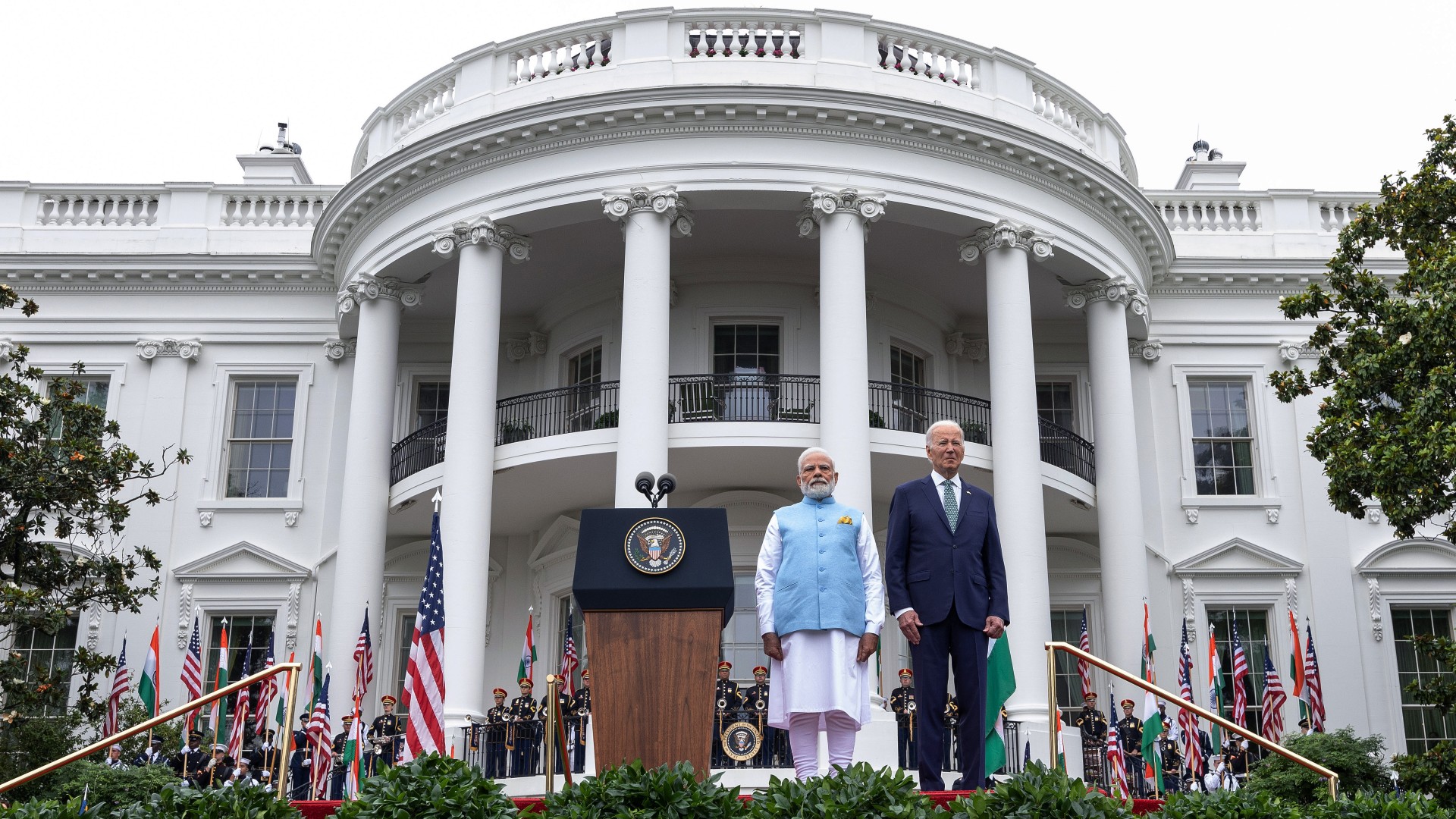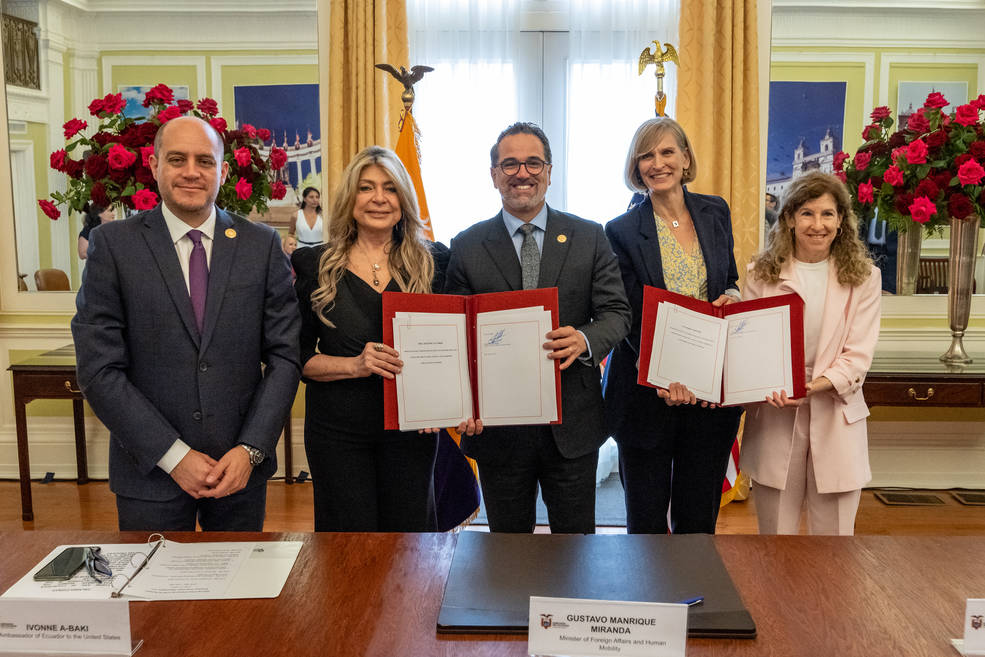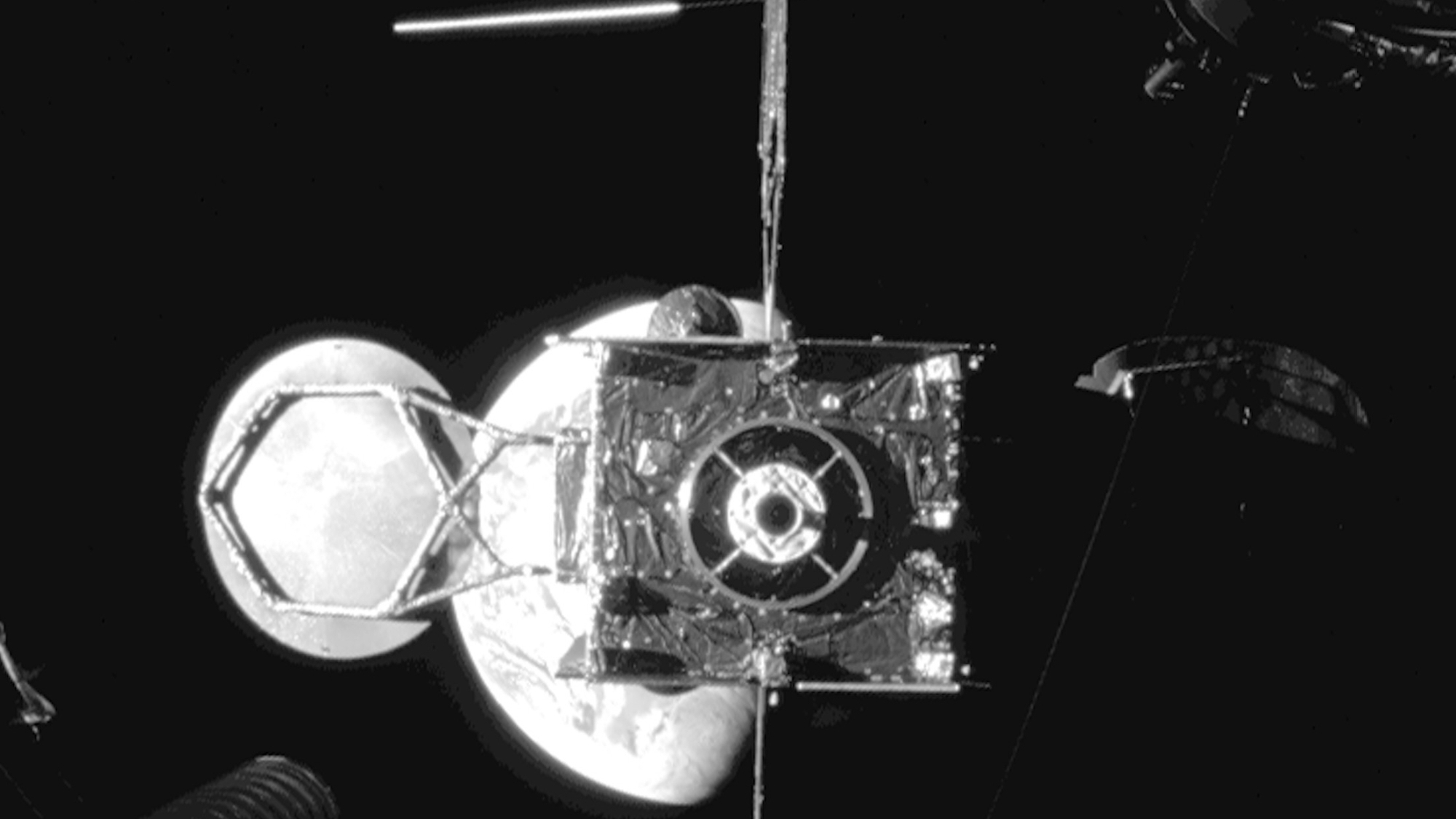India and Ecuador sign Artemis Accords for peaceful moon exploration
India signed the agreement during an official state visit to the White House on June 22.

India and Ecuador both signed the Artemis Accords this week, bringing the total number of countries that have agreed to sustainable and peaceful space exploration to 27.
The Artemis Accords, which share their name with NASA's Artemis program of moon exploration, are a framework co-authored by NASA and the U.S. Department of State that lays out a set of principles and practices designed to ensure sustainable and peaceful exploration of the moon and beyond. Ecuador became the 26th country to sign the accords on Wednesday (June 21) at the nation's embassy in Washington, D.C., according to a U.S. Department of State statement.
And today (June 22), India became the latest nation to sign the Artemis Accords during a state visit that includes the country's prime minister, Narendra Modi. "India has signed the Artemis Accords, which advance a common vision of space exploration for the benefit of all humankind," according to a White House statement.
Related: What are the Artemis Accords?
Ecuador's foreign affairs minister, Gustavuo Miranda, and NASA associate administrator for International and Interagency Relations Karen Feldstein signed the accords during a ceremony on Wednesday.
"Today, Ecuador joins the group of nations committed to safeguarding outer space for the future," said NASA Administrator Bill Nelson in a NASA statement. "The achievements made in this golden era of exploration will benefit the Artemis generation — in our nations and around the globe."

Meanwhile, the White House's statement announcing India's signing of the accords lays out the further cooperation in space between the world's most populous country and the United States, indicating that NASA will provide training to astronauts with the Indian Space Research Organization (ISRO) ahead of a 2024 joint mission to the International Space Station (ISS).
Get the Space.com Newsletter
Breaking space news, the latest updates on rocket launches, skywatching events and more!
The Artemis Accords were launched in 2020 when representatives from eight nations — the United States, Australia, Canada, Japan, Luxembourg, Italy, the United Kingdom and the United Arab Emirates — signed the agreement. The accords seek to lay out guidelines that would help avoid conflicts or potential misunderstandings as more and more nations begin exploring space and the moon. They include commitments for sharing scientific knowledge and ensuring interoperability for space-based infrastructure, among other agreements.
However, some nations argue that the Artemis Accords are skewed in favor of the United States. Russia and China, who have their own plans to build a base on the moon by the mid-2030s, have argued that the accords are a power grab by the U.S. and its allies.
Both China and the United States have ambitious goals for lunar exploration, including establishing sustainable settlements near the moon's south pole. NASA chief Bill Nelson has declared the two nations to now be in a space race over staking territorial claims to parts of the moon.
Join our Space Forums to keep talking space on the latest missions, night sky and more! And if you have a news tip, correction or comment, let us know at: community@space.com.

Brett is curious about emerging aerospace technologies, alternative launch concepts, military space developments and uncrewed aircraft systems. Brett's work has appeared on Scientific American, The War Zone, Popular Science, the History Channel, Science Discovery and more. Brett has English degrees from Clemson University and the University of North Carolina at Charlotte. In his free time, Brett enjoys skywatching throughout the dark skies of the Appalachian mountains.









